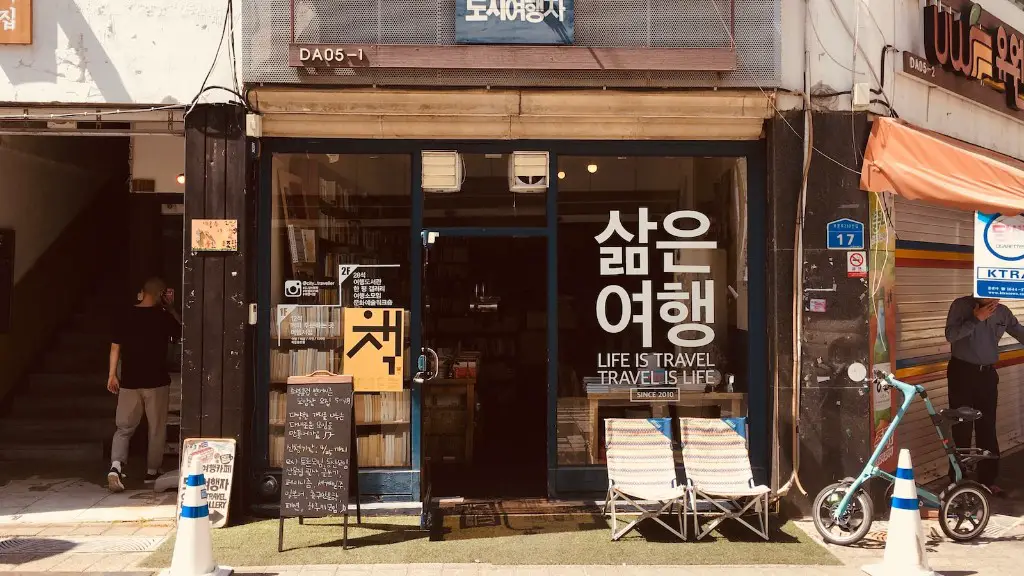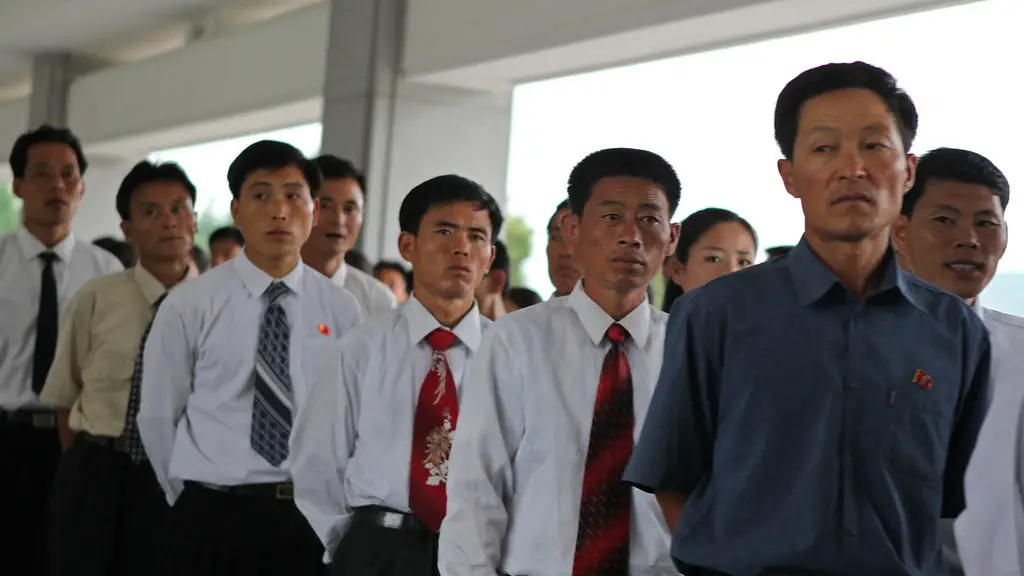What Are the Consequences of North Korea’s Activities?
North Korea has for years violated world stability and international laws through their proliferation of missiles and nuclear technology. Their continued use of aggressive rhetoric has alarmed the international community, raising questions about how to handle the situation. Any response to North Korea must take into account the massive destruction that their activities have caused and how far-reaching the consequences can be.
North Korea has solidified its nuclear capabilities, with at least ten warheads and more than a dozen launchers. Having these weapons and the technological know-how to use them could increase the danger of a nuclear war or an attack on South Korea, Japan, and other allies of the United States. North Korean missiles have already landed in Japanese waters, raising concerns about the country’s intentions.
The development of North Korea’s nuclear arsenal has sparked fears of potential nuclear arms races in East Asia. Japan, South Korea, and other countries in the region could potentially develop their own weapons of mass destruction to counter North Korea’s aggressive nuclear posture. This could lead to an incredibly unstable region, with powerful countries vying for supremacy.
Additionally, North Korea’s nuclear activity threatens the global economic order. For instance, any conflict that starts in the Korean Peninsula would lead to an economic downturn in the region, potentially setting back global trade and tourism. Furthermore, the heightened uncertainty in the region could lead to increased prices for essential goods and services, hitting the average citizen hard.
What Role Could the U.S. Play in Dealing With North Korea?
The United States has a pivotal role to play in addressing the North Korea crisis. The U.S. has maintained a policy of “strategic patience”, focusing on economic and diplomatic pressure to de-escalate tensions and prevent any attack. American officials have reached out to North Korea to engage in talks, using a combination of carrot and stick tactics, but they have yet to make any headway.
The United States has tried to bring North Korea to the negotiating table through diplomatic means. However, North Korea has been reluctant to engage with American officials, viewing the U.S. as an enemy. As a result, the U.S. has implemented harsh sanctions in order to bring North Korea to the negotiating table.
On the other hand, the United States is also trying to find ways to contain North Korea’s nuclear ambitions. Through sanctions and diplomatic negotiations, the United States is trying to limit the country’s nuclear capabilities and prevent any further missile tests. The U.S. has also improved its defense capabilities in the region, beefing up its missile defenses in Japan and South Korea.
There is also the possibility of direct talks between the U.S. and North Korea. The two countries have not had official diplomatic relations since the Korean War, and any direct talks would be a diplomatic milestone.
What Could a Positive Solution Look Like?
A positive solution to the North Korea problem would involve a complete and verifiable denuclearization of the Korean Peninsula. This would require North Korea to dismantle its nuclear weapons and end its ballistic missile program.
The United States and its allies are willing to provide economic incentives and security guarantees in exchange for such a move. They are also willing to lift economic sanctions in order to promote economic growth and development in North Korea.
However, any positive solution would still involve a certain amount of compromise. The United States would need to offer some security guarantees, such as providing a defensive umbrella, in exchange for an eventual denuclearization of the region. The international community must also be willing to provide economic aid in order to help the North Korean people.
What Could the Regional Powers Do?
The regional powers in East Asia have an important role to play in finding a solution to the North Korea crisis. China, South Korea, and Japan all have an important stake in the outcome of the crisis.
China is North Korea’s main ally and biggest trading partner, and they have a significant influence over the country’s policies. China could use its economic clout to bring North Korea to the negotiating table and help find a peaceful solution.
South Korea and Japan are both heavily invested in the security of the region, and they could use their economic and diplomatic power to contain North Korea’s activities. They could provide economic aid and assistance to North Korea, as well as negotiating assistance, in order to reach an agreement outlining a denuclearized region.
What Could the International Community Do?
The international community has a vital role to play in finding a solution to the North Korea problem. The United Nations (UN), the European Union (EU), and other international organizations have considerable influence over North Korea, and they could use their power to bring the country to the negotiating table.
The United Nations could pass sanctions against North Korea and require that they abide by international laws. The UN could also create a peacekeeping force in the region, which would help to prevent any conflict from escalating.
The European Union could provide economic support to North Korea and its citizens. This sort of assistance could help to alleviate the dire economic situation in North Korea and could help to reduce tensions in the country.
The international community could also provide diplomatic assistance to the United States, Japan, South Korea, and other countries involved in the crisis in order to reach a positive solution.
What Could North Korea Do?
In order for a solution to be achieved, North Korea needs to take steps to reduce tensions in the region. This could include committing to a peaceful resolution of the issue and committing to a denuclearization of the region.
North Korea could agree to reduce its nuclear arsenal and abide by international agreements. Furthermore, it could provide verifiable evidence that it has dismantled its ballistic missile program. North Korea could also commit to returning to the nuclear non-proliferation treaty.
In addition to these measures, North Korea could also make diplomatic gestures, such as engaging in talks with the United States and its allies, engaging in more peaceful activities, and releasing political prisoners.
What Could World Leaders Do?
World leaders have an important role to play in resolving the North Korea crisis. They must use their influence to promote a peaceful resolution to the crisis. This could include providing diplomatic support and assurance to North Korea, promoting dialogue between countries, and offering economic incentives to the country.
Furthermore, the world leaders could address the humanitarian crisis in North Korea. This could involve providing economic assistance and aid to the country in order to help improve the lives of its people.
Additionally, world leaders could provide legal and human rights protections to the citizens of North Korea. They could also support the United Nations in passing resolutions that would call for accountability for any violations of human rights in North Korea.
What Could Civil Society Do?
Civil society can also play a role in resolving the North Korea crisis. Organizations such as Amnesty International and Human Rights Watch have called on the international community to take steps to protect the citizens of North Korea.
Civil society organizations could organize campaigns to raise awareness about the North Korean situation, advocating for the protection of human rights and for a peaceful resolution of the conflict. They could also provide legal assistance and humanitarian aid to North Korea.
In addition, civil society organizations could work to strengthen the ties between North Korea and its neighbors. They could organize exchanges between the citizens of North Korea and South Korea, Japan, and China, as well as other countries, in order to promote friendship and dialogue.


